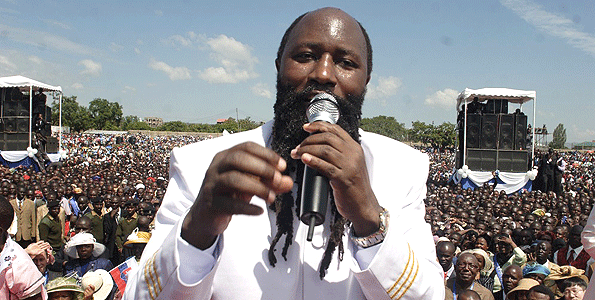Followers of Prophet David Owuor's Repentance and Holiness Ministry have shed light on the practice of washing roads for their leader, explaining that it symbolizes their joy and anticipation of a special guest.
In a recent appearance before the Senate Adhoc Committee investigating the deaths of over 400 followers of Pastor Paul Mckenzie in Shakahola, Kilifi, officials of the Repentance and Holiness Ministry defended the road-washing tradition. The act of washing roads and cleaning public places whenever Prophet Owuor visits is seen as a form of honoring their leader and expressing their happiness.
Lawyer Gerald Odiwour, who represented Prophet Owuor during the meeting, explained that the road-washing is a way for the members to demonstrate gladness and reverence for their leader. He likened the gesture to the practice of painting roads and buildings when receiving heads of state, asserting that it should not be a cause for concern for a group of people expecting a guest.
However, Nominated Senator Veronica Maina questioned why followers of Prophet Owuor took up the responsibility of washing roads and public places when it was, in her view, a task that should be carried out by the county. Her query sparked a debate during the committee meeting.
The church's defense emphasized that the tradition has biblical precedence, as in the past, cleaned roads were used to honor leaders. Washing the roads for Prophet Owuor is seen as an expression of respect and joy, as they eagerly await his arrival.
The road-washing tradition is deeply ingrained in the culture of the Repentance and Holiness Ministry, and its significance to the faithful goes beyond the mere physical act. As the committee continues its investigations into the deaths of Pastor Paul Mckenzie's followers, this unique practice sheds light on the deeply-held beliefs and traditions within the congregation of Prophet Owuor's ministry.

